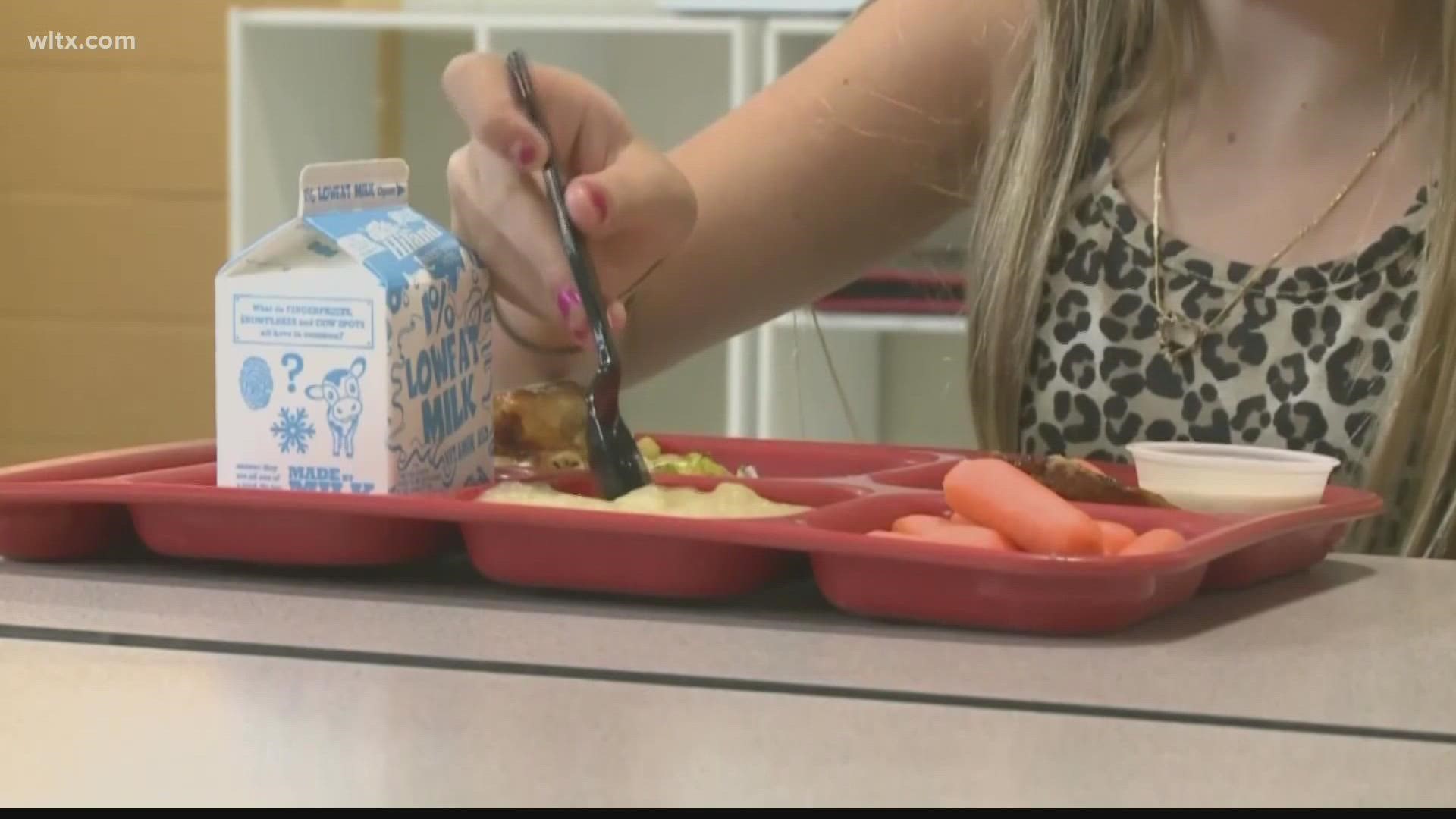COLUMBIA, S.C. — The Richland School District Two Board met Thursday night to further discuss student meal debt.
Earlier this week, the district addressed an email mistakenly sent to parents Monday about a pre-pandemic policy that denied meals to high school students with more than $10 in meal debt.
The email said meals would be thrown away and not served to students with a meal debt, which left several parents outraged.
After many phone calls, and Facebook comments, the district put out a video apologizing for the email, and explaining their policies on student meals. The district says no students will be denied food.
I spoke with Lacretia Branch before the special called school board meeting about her concerns over student meals.
"This all really moved me the wrong way because I really thought about those children whose parents are struggling and can't afford to feed them...I just can't think about how a child might feel because they don't have enough money in their account," Branch said. "Somebody's going to throw it away? It's really sad and frustrating because if they're just going to throw it away, why not feed a child with it instead?"
Branch hoped that the district would come up with a solution that could help make sure all children are fed.
"I just hope the district actually addresses this issue instead of skating around it," she said.
Branch also hoped that parents would show up to the Thursday night meeting to share their thoughts on school meal debt. However, at the meeting only one person came to voice their opinion.
"When the school district came to the tax payers and asked for money, they did not ask for money to feed students," one man said.
In the two hour meeting, the board said the current debt for school meals is at $100,000, and that only four elementary schools in the district qualify for universal free meals.
The board says if the district paid for all student meals it would cost a little more than $4 million per year. That sparked a discussion about the possibility of free meals for all students.
"I don't think it's fair for us to just pay for meals for students who do not need it. If parents think we're just going to pay for everything they might stop paying altogether," said Chairman James Manning.
Ultimately, the board decided that they need to see more data before moving forward. The district is hoping to find out the average meal debt for elementary, middle, and high school students, and if creating a debt threshold would be a possible solution.
The next regularly scheduled school board meeting will be on September 13. School meal debt could be addressed before then if there is another special called meeting.

